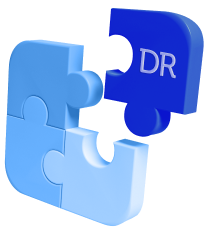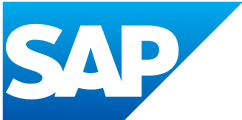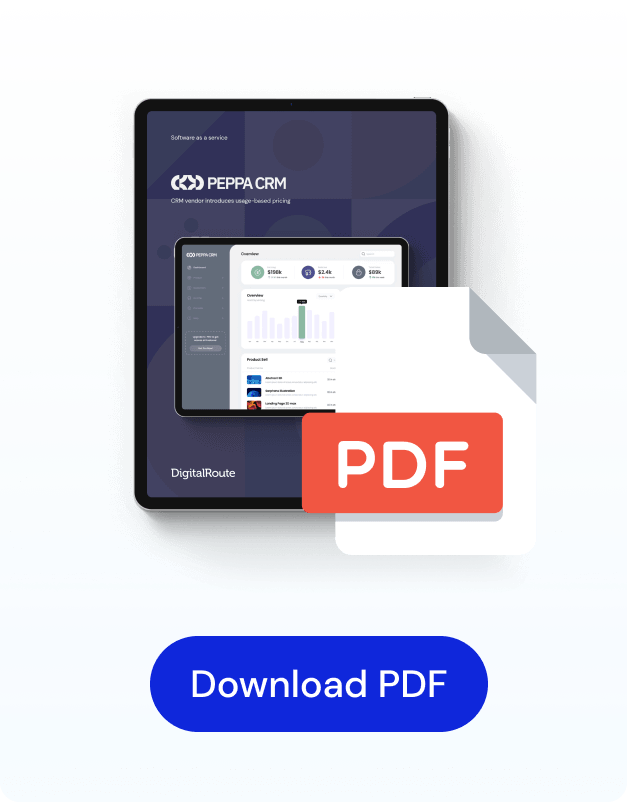
00. Industry Overview
The high-tech software industry for sales and marketing organizations, is witnessing multi-sided competitive pressure from both industry leaders and challengers, driving software providers to innovate their business model. Commonly used license and subscription models based on seats and users are proving to be restrictive barriers that stall growth and limit the exposure of a product’s full value.
In parallel, the industry’s move to consumption-based models and usage pricing is gaining momentum. It enables product-led growth and deepens customer understanding, leading to improved customer experience and more personalised and flexible offerings based on needs and usage.
The consumption or usage-based model can also be a pragmatic approach for appealing to the smaller or enterprise start-up segment of the market, with offers that allow for end-customer growth. Afterall, the small customers of today could be the large ones tomorrow.
Furthermore, the usage-based approach is a good way for challenger brands to re-engage with Enterprise accounts where leaders have dismissed innovation in favour of focusing purely on profit making.
Businesses across all industries, however, are faced with a common challenge. As they move to adopt an Anything-as-a-Service consumption model or evolve to usage-based pricing, homegrown point-to-point data integrations are proving to be inadequate, specifically in terms of scalability. Usage-based business models demand accurate, timely and enriched data that their traditional data architecture does not support.
01. PeppaCRM
PeppaCRM’s vision is to become the top challenger brand by annual revenue, driven by their unique focus on CRM customer experience. To achieve this, the company focuses its development primarily around features that improve the sales effectiveness of its customers and to optimize their customers’ journey through the PeppaCRM suite of applications.
02. Challenges
A new business model is required, and there is concern that the current billing platform is inadequate. In addition, PeppaCRM SaaS applications generate large amounts of data related to the operating environment, user behaviours and application performance, but the company is failing to effectively capture, operationalize and monetize large quantities of this information.
Strategically they have decided on a product-led growth approach, understanding that starting small means they have to be proactive in customer upselling. To be effective, this means analyzing usage data to gain the best possible understanding of the product and how it is being used. PeppaCRM have invested in a larger customer success organisation to realise this objective.
03. The Project
They require a solution that will enable them to launch a new business model derived from usage data and is monetized through usage-based pricing. The selected solution should enable them to collect and process the high data quantities generated by the SaaS platform, describing how their customers use the service. The usage data then needs to be accurately presented to support the finance department for revenue management, to customer success teams who will monitor user experience and product management who can study product adoption and which areas to invest in next.
04. Solution
Usage Engine then processes the data into clean records that can be accurately presented to support the finance department for billing and revenue management operations which include identification of and correction for revenue leakage.
PeppaCRM customer success teams who will monitor user experience, and other business systems such as analytics will benefit from the dependable usage insights the solution has to offer.
05. Benefits
With full control of its usage data, PeppaCRM can now launch their consumption-based business model. Due to the real-time data processing capabilities of the DigitalRoute solution, PeppaCRM can also bill for their new products and services straight away and start to recognize revenue as soon as their services are launched. The company has strengthened its monetization potential with the ability to now offer more options on a pay-per-use model, and to better serve its customers with pay-per-use only plans.
PeppaCRM are now empowered to develop and offer new services based on actual customer actions, focusing on software-usage behaviour. They can now grow revenue by charging for different levels of usage and can communicate with customers about how their consumption is affecting their costs.
As the DigitalRoute solution processes usage data automatically, with built in error-correction capabilities, PeppaCRM are able to prevent data loss, and therefore lost revenue. All transactions are fully auditable and transparent, preventing disputes and proving that regulations have been followed.
With the Usage Engine solution in place, it acts as an aggregating, auditing and data enriching channel which reduces the urgency to update PeppaCRM’s order-to-cash business systems. This demonstrates how DigitalRoute can accelerate revenues from new services.
| Business Department | Business Outcome | Solution Feature |
| Finance and Revenue Operations | Confidently launch new usage-based business models | Monetization |
| Eliminate revenue leakage | Automation & Auditing | |
| Customer Success | Pinpoint new business opportunities | Insights |
| Proactively address experience challenges that could lead to churn | Insights | |
| Product Management | Align content and service catalogue | Insights |
06. DigitalRoute
The DigitalRoute Usage portfolio was purpose-built to solve the data challenges of subscription and consumption-based models. It’s a scalable solution that handles revenue-critical transactions for any volume of data, from any source and in any format. In this case, PeppaCRM uses DigitalRoute Usage Engine to overcome their business model evolution challenge.
If you’re ready to explore how we can help you, let’s talk.



